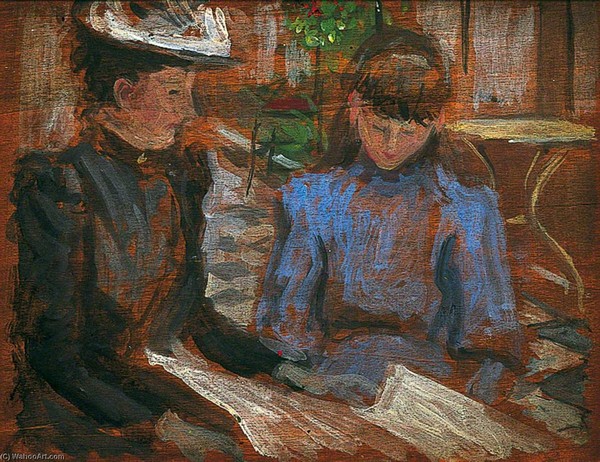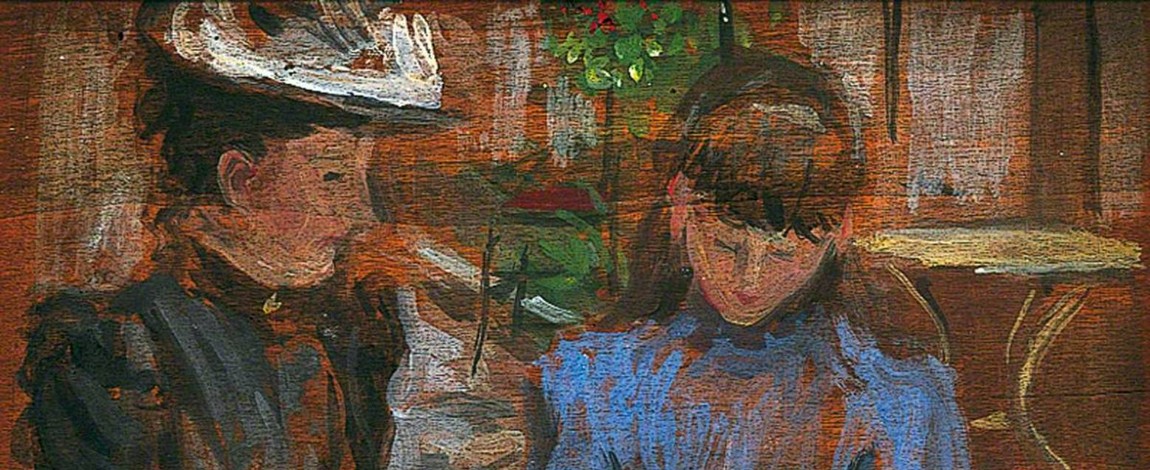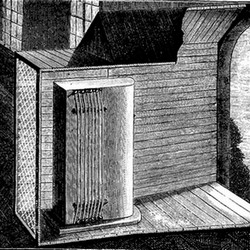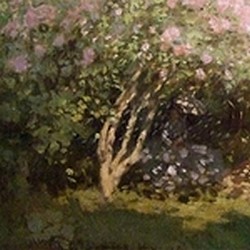
After giving several concerts in 1848 and 1849, Johannes Brahms left his career as a solo pianist to focus on composition; in the following years he devoted himself to it intensively and in 1853 began publishing some of his works. The first two were two sonatas, and the third, a collection of six Lieder, the first of which was very successful. A success that has survived until now; Liebestreu [True Love], Op. 3/1 is one of Brahms's best known songs.
The poem is by Robert Reinick, a name that may be familiar to you in relation to Robert Schumann; both were friends, and a few Lieder join the two names (among them the beautiful Liebesbotschaft), in addition to Genoveva's libretto. Brahms composed only two songs with Reinick's poems, both written in January 1853, when he was still nineteen years old, and a few months after the poet's death.
The three stanzas of Liebestreu present a conversation between a mother and a daughter. We are not aware of the exact context, but the daughter is lovesick and the mother is concerned about the daughter. In each stanza, we hear first the mother, who asks the daughter to forget this unfortunate love, and then the daughter, who refuses. If you read the poem before you hear the song, you will already notice that the daughter is calm in her answers, while the mother is agitated. That's what the repetitions of certain words in each stanza convey to us.
These two characters are also well differentiated in the song. On the one hand, the mother's two verses repeat the same melody in each stanza, but sehr langsam [very slow] at the first stanza, poco più mosso [a little more movement] at the second, and agitato [in agitated manner] a the third. The daughter responds träumerisch [as in a dream] and pianissimo the first two times; her sentences are sweet and serene and create a beautiful contrast with those of her mother, who is so worried. So far, it appears that the song will be strophic. However, in the last stanza, the daughter, perhaps because she has lost patience, or because she can no longer control herself, uses the same exalted tone as the mother. She sings even higher, reaching the climax of the song, until the repetition of the last words of the poem (a repetition which, in this case, we owe to Brahms), resumes its calm character. As for the piano, the right hand maintains tension with triplets that repeat throughout the song, while the left hand differentiates the mother and the daughter: it doubles the daughter's vocal line, but advances to the mother's.
Listen to this magnificent song by Brahms, Liebestreu, in a reference version, recorded in 1983 by Jessye Norman and Daniel Barenboim.
To conclude, do you want to know why this song became an earworm the last few weeks? Have you watched the series The Defeated?
»O versenk', o versenk' dein Leid,
mein Kind, in die See, in die tiefe See!«
Ein Stein wohl bleibt auf des Meeres Grund,
mein Leid kommt stets in die Höh'.
»Und die Lieb', die du im Herzen trägst,
brich sie ab, brich sie ab, mein Kind!«
Ob die Blum' auch stirbt, wenn man sie bricht,
treue Lieb' nicht so geschwind.
»Und die Treu', und die Treu',
's war nur ein Wort, in den Wind damit hinaus.«
O Mutter und splittert der Fels auch im Sturm,
Meine Treue, die hält ihn aus.
"Oh sink, sink your sorrow,
My child, in the sea, in the deep sea!"
A stone rests well at the bottom of the ocean;
My sorrow, though, always comes up to the surface.
"And the love that you carry in your heart,
Destroy it, destroy it, my child!"
If the flower also dies when one breaks it off,
True Love is not so swift.
"And your constancy, your constancy,
It is only a word; into the wind with it!"
Oh, Mother - even if the rock splinters in the wind,
My constancy withstands it.
(translation by Emily Ezust)


















Comments (0)
Comments powered by CComment